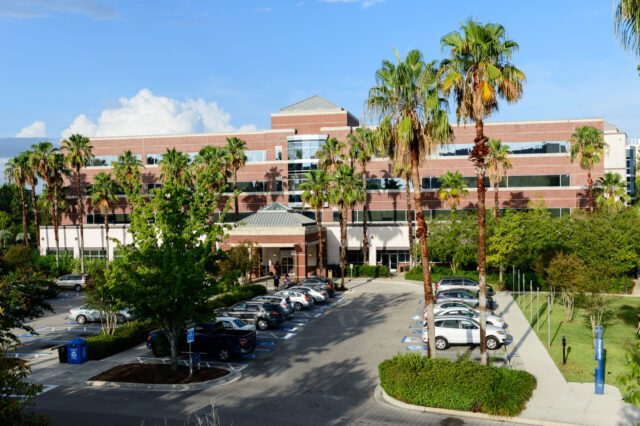What is pulmonary alveolar proteinosis?
Pulmonary alveolar proteinosis, or PAP, is a rare lung disease caused by an abnormal buildup of naturally occurring lubricant in the lungs (surfactant). It prevents air from getting through the air sacs (alveoli), so your blood doesn't get enough oxygen. PAP can make it difficult to breathe.
Early detection, diagnosis and treatment can help improve your quality of life. With the right treatment from an experienced pulmonologist, PAP is manageable.
Types of PAP
This lung disease comes in different forms: autoimmune PAP, secondary PAP and congenital PAP.
- Autoimmune PAP - The most common form, affecting roughly 90% of adults who have it. This form is characterized by one’s immune system mistakenly attacking cells that help keep their alveoli clear.
- Secondary PAP - Develops when exposure to another disease or toxin affects cell function in the alveoli.
- Congenital PAP - May be present at birth or other ages, and it can also be inherited. This rare interstitial lung disease is a product of changes to particular genes that control cell function in the legs.
Alternative names
PAP, autoimmune PAP
What causes PAP?
The majority of cases of PAP are due to the development of antibodies, called autoimmune PAP (aPAP). In some cases, PAP can be secondary to genetic factors, infections and cancers.
In all cases, the abnormal accumulation of lung surfactant impairs the ability of oxygen to be exchanged in the lungs, resulting in symptoms.
Symptoms
Some PAP patients may have very mild disease and not have any symptoms.
In the majority of cases, the symptoms of PAP tend to develop slowly and get worse as the disease progresses. It may start as increased fatigue, dry cough and shortness of breath. Patients are often misdiagnosed as having asthma or recurrent pneumonias.
Patients with PAP may be at higher risk of developing an infection in the lungs.
Other symptoms include:
- Lightheadedness
- Dry cough
- Chest pain or discomfort
Is pulmonary alveolar proteinosis fatal?
PAP can cause life-threatening respiratory failure in severe cases.
Diagnosis and tests
Your health care provider will perform a physical exam, listening to your lungs, and ask about your symptoms. The exam may find abnormal breathing sounds.
Tests for PAP may include:
- Blood tests to check blood oxygen level
- Testing for the antibody for autoimmune PAP (GM-CSF antibody)
- Pulmonary function test to measure how well your lungs are working
- Imaging exams, such as chest X-ray or CT scans
- Lung biopsy, which uses bronchoscopy or surgery to remove tissue from your lungs for examination
Management and treatment
There isn't a cure for pulmonary alveolar proteinosis at this time. However, regular treatments can help you breathe better and relieve other symptoms. PAP can clear on its own in a small number of people with the rare disease. Without treatment, severe PAP can sometimes cause respiratory failure or death.
In patients who have progressive disease and increased shortness of breath, oxygen therapy may be needed at home. In such cases, a procedure may be offered where patients are admitted to the hospital and the lungs are washed with fluid to clear out the buildup of surfactant. This procedure is called whole lung lavage.
Your provider may decide to give you some medical therapies that may slow down progression of the disease. You will be closely monitored during treatment to watch for side effects and to see how well you are responding to the medicine.
Other treatments may include:
- Oxygen therapy at home
- Lung transplantation, in advanced cases
Other tips to follow:
- Get a yearly flu vaccine, as well as other vaccines such as the pneumonia vaccine and the COVID-19 vaccine
- Refrain from smoking
- Ask about active clinical trials
When to contact a medical professional
Contact your provider if:
- You begin to develop very sudden or worsening shortness of breath
- You develop chest pain
- You develop other symptoms
Patient information

